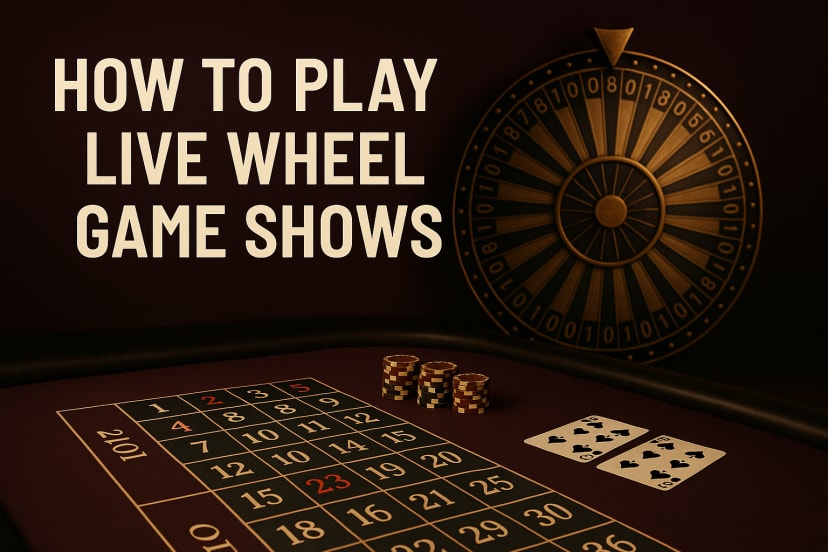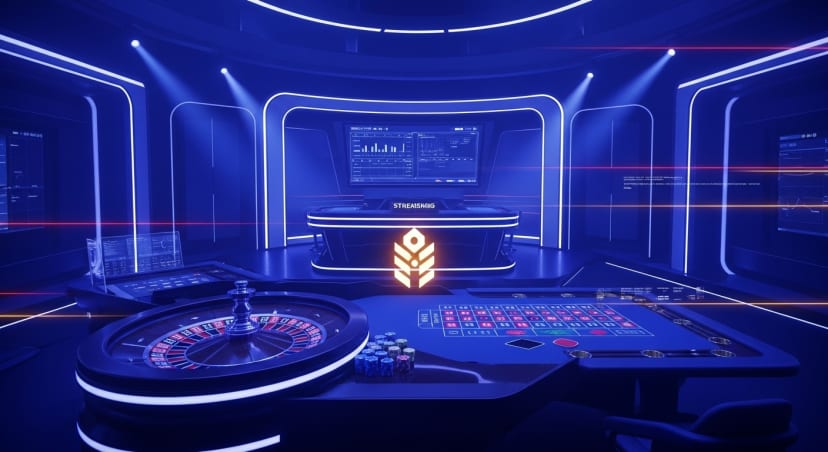Live Wheel Games vs Crypto Wheel: What’s the Difference?

The online gambling scene in Ghana has really grown, bringing new ways to enjoy classic casino games. Among these exciting developments, wheel-based games have sort of split into two main types: live-hosted wheel shows and crypto-powered wheel games. While both give you that thrilling spinning wheel action, they work quite differently when it comes to how they operate, ensure fairness, and keep players hooked.
How Fair Are They? Live vs Crypto Wheels in Ghana
Live Wheel Games:
In Ghana, live wheels play by the rules using licensed RNG systems, which are thoroughly tested and certified by well-known live gambling authorities. The physical wheel itself gets regular upkeep and calibration, and all the digital parts are under strict regulatory checks. You can trust that these games are fair through official channels.
Crypto Wheel Games:
Crypto wheels use a cool technology called "provably fair." This means you can actually check if each spin was fair using blockchain hashing. Players can independently confirm the results, no need to rely on traditional authorities. It's all about mathematical proof and transparency right there on the blockchain.
Fairness Comparison Table:
| Aspect | Live Wheels | Crypto Wheels |
|---|---|---|
| Verification | Regulatory bodies | Blockchain hash |
| Transparency | Regular audits | Real-time verify |
| Trust Model | Licensed operators | Smart contracts |
In Ghana's regulated online casinos, traditional live wheel games depend on tested Random Number Generators (RNGs) and solid wheel mechanics, all certified by authorities like the Malta Gaming Authority or the UK Gambling Commission. The trust here comes from official bodies and regular checks.
Crypto wheels bring in the innovative "provably fair" system. With this, every spin’s outcome can be confirmed on the blockchain. Players can personally verify the fairness of results using cryptographic hashes – a level of transparency you don't get with traditional games. It's like having the proof right in your hands.
This is a big change from just "trusting the license" to being able to "verify it yourself." Both methods ensure fairness, but they go about it from completely different angles: one is about institutional trust, the other is about mathematical certainty.
Game Structure: Live Hosts vs. Player-Controlled Spins
Live wheel games, like those popular shows from Evolution Gaming such as Crazy Time or Dream Catcher, are essentially real-time broadcasts. Professional hosts energetically spin physical wheels in a studio, giving you that authentic casino feel. These live casino game shows follow a set schedule, and the hosts keep things lively with commentary and interaction, making it a real entertainment experience.
On the flip side, crypto wheel games run instantly through blockchain smart contracts. You don't have to wait for a show to start. You control when the wheel spins through quick, automated actions. Popular live casino platforms like Stake.com and BC.Game in Ghana often use this player-controlled approach, where every spin happens the moment you decide to play.
The main difference is between "host-driven fun" and "player-controlled instant thrills." Live wheels build excitement through human interaction, while crypto wheels focus on speed and giving you the control.
Entertainment Value: Immersive Wheel Game Shows vs Instant-Play Autonomy
Live wheel games excel in creating entertainment value through:
- Dynamic host personalities
- Interactive chat features
- Studio atmosphere
- Multiplayer excitement
- Real-time reactions and celebrations
Crypto wheels focus on different entertainment aspects:
- Rapid gameplay
- Clean, efficient interfaces
- Immediate results
- Personal control
- Minimal distractions
The entertainment divide reflects different player preferences: those seeking social, immersive experiences versus players prioritizing speed and autonomy.
💡 Tip: Learn the basics of how to play live wheel games before choosing a wheel game type!
Payout Logic: Segment-Based Volatility vs Algorithmic Multipliers
Understanding "segment-based volatility" is crucial for live wheels, where physical segments on the wheel display fixed multipliers. Players can see potential payouts, creating tangible anticipation as the wheel spins toward high-value segments.
Crypto wheels typically employ algorithmic multipliers, where provably fair systems generate payouts through mathematical functions. This creates a different kind of excitement – one based on instant mathematical certainty rather than physical wheel momentum.
Bridging the Gap: Hybrid Models and Future Trends
The industry is witnessing an interesting convergence between these formats. Some live wheel providers now implement blockchain verification systems, while certain crypto platforms add live host elements to their instant games. This hybrid approach suggests a future where the best elements of both formats combine.
Emerging trends include:
- Blockchain-verified live games
- Social features in crypto wheels
- Cross-platform compatibility
- Integrated cryptocurrency payments in traditional games
- Enhanced mobile optimization for both formats
Choosing Between Live and Crypto Wheels
Your choice between live and crypto wheels should depend on your priorities and your chosen strategies for wheel games:
Choose Live Wheels if you value:
- Social interaction
- Host-driven entertainment
- Traditional casino atmosphere
- Scheduled gaming sessions
- Regulated environments
Choose Crypto Wheels if you prefer:
- Instant play
- Complete control
- Mathematical verification
- Rapid gameplay
- Cryptocurrency integration
Conclusion: Which Wheel Game Type is Best?
Both formats offer legitimate, entertaining gaming experiences – they simply cater to different player preferences and priorities. As the industry continues to evolve, we'll likely see further innovation in both categories, potentially leading to even more sophisticated hybrid models that combine the best of both worlds.
The future of wheel-based games looks bright, with technology and entertainment continuing to merge in exciting new ways. Whether you prefer the social buzz of live wheels or the autonomous efficiency of crypto wheels, there's never been a more diverse range of options for wheel game enthusiasts.
FAQ
What's the key difference between live wheel games and crypto wheel games in Ghana?
Live wheel games feature real dealers in real-time, offering a social and interactive experience. Crypto wheel games are often automated or blockchain-based, providing faster gameplay and provable fairness, but less direct interaction.
Are crypto wheel games more secure than live wheel games?
Crypto wheel games frequently employ provably fair algorithms, enabling players to verify the fairness of each spin. Live wheel games rely on licensed casinos and regulated live dealers for security and transparency.
Can I use Ghana Cedis (GHS) in crypto wheel games?
No, crypto wheel games require digital currencies like Bitcoin or Ethereum. However, live wheel games usually accept standard fiat currencies, and some live casinos are beginning to incorporate crypto options.
Which type of wheel game offers better payouts: live or crypto?
Crypto wheel games might offer lower house edges or exclusive bonuses, while live wheel games often include multipliers and engaging bonus rounds that can potentially lead to larger payouts.
How does the gameplay experience differ between live and crypto wheel games?
Live wheel games offer immersive, real-time streaming with hosts, while crypto wheel games emphasize speed, automation, and verifiable results, often with simpler interfaces.
Are the bonuses different for live and crypto wheel games in online casinos?
Crypto casinos often provide generous deposit bonuses and rewards for using digital currencies. Live casinos frequently offer loyalty rewards and game-specific promotions. Remember to always gamble responsibly.

















